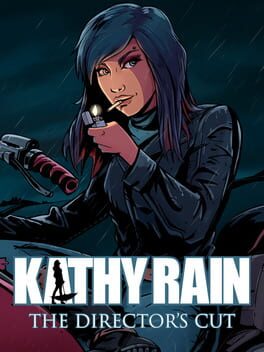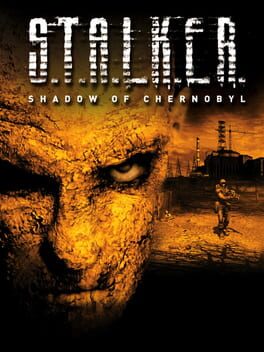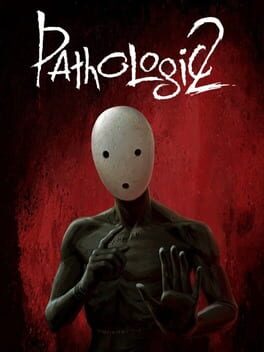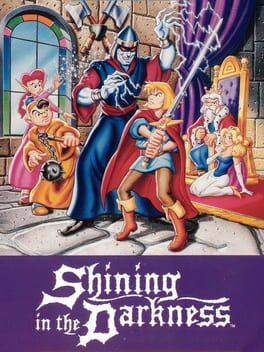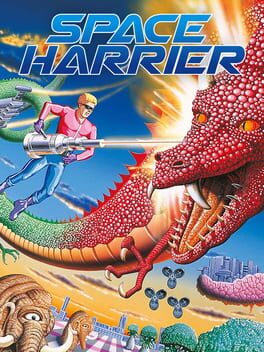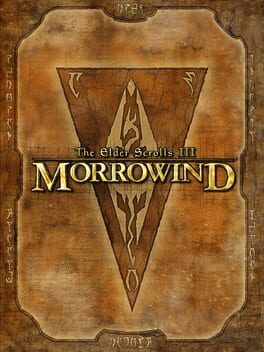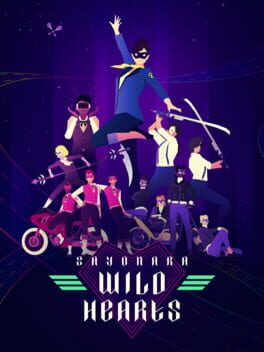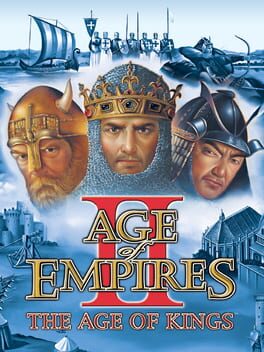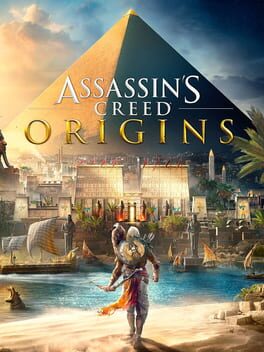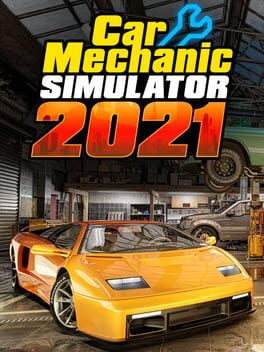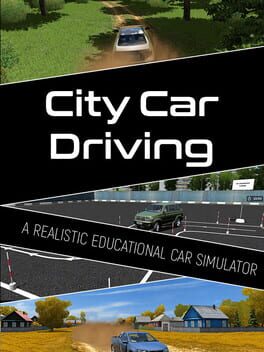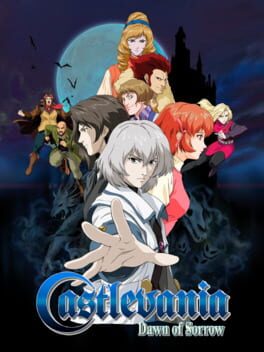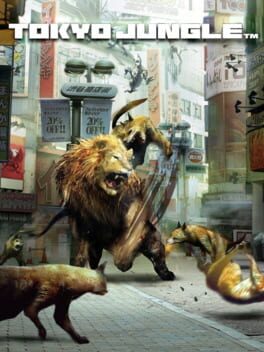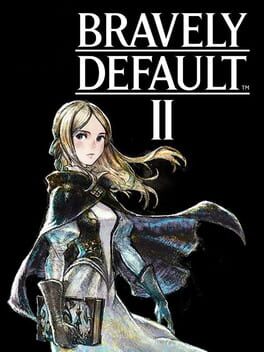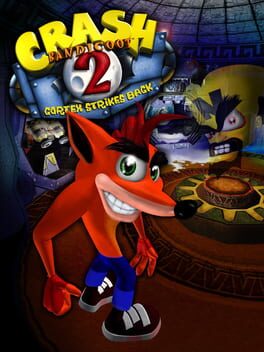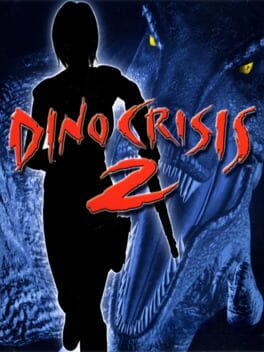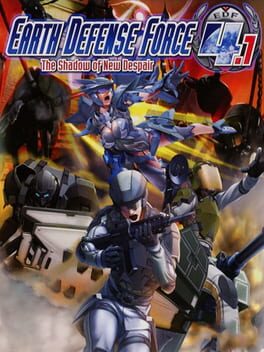katsugarry
163 reviews liked by katsugarry
I was one of the few who bought Kathy Rain back in the day and I enjoyed the point'n'click adventure enough to purchase the Director's Cut shortly after its release despite knowing those improved versions often are more likely intended to cash in. In this case though it was about an independent project in "hobby" production alongside a full time job between 2011 and 2016 that in some parts still felt rushed and showed some inconsistency.
It didn't matter that much in a surreal story highly influenced by David Lynch and his Twin Peaks, but to get this out of the lane, what I also wanted to support to pave way for a possible sequel turned out familiar but more polished, so I decided against dissecting Kathy Rain for a comparison, accepting the Director's Cut as the definitive version intended by Clifftop Games' Joel Staaf Hästö.
Hästö regrets a couple of his original decisions according to the interview linked above, but Kathy Rain sure profits from taking place in the mid-nineties. Recapturing the atmosphere of pixel art and a revival of the supernatural via shows like the X-Files goes very well with the absence of mobile phones and google that can destroy a lot of the mystery tropes.
Like I've mentioned in my recent review for Full Throttle Remastered (the playthrough actually interrupting my Kathy Rain sessions because her Corley Motors vehicle reminded me of having Schafer's game in backlog) it was also a good time slot for bratty girls to take over and protagonist Kathy, a student of journalism, appears a lot more gruff than Veronica Mars as one of the other possible inspirational sources.
It's quite possible it shows that the sarcastic and motorcycle riding Kathy Rain was written by a male, but what draws me into that game from the first minute is that both Kathy and her christian roommate could have totally been part of our clique back then. If you grew up watching Roseanne rather with a crush on Darlene than Becky you might instantly like her as well.
With Kathy Rain returning to her hometown for the funeral of her grandfather we get an insight to her shattered family structure leading to putting clues together for what might have happened in the past. Though this builds up in proportion, in a way it's the opposite of another retro Twin Peaks adventure from the same era, Thimbleweed Park, that geeks out on Plato's cave allegory to have us look to the outside, whilst Kathy Rain is rather pushing us to look for the insides.
That makes sense though, as Kathy Rain's hard shell as so often is put up as protection with her being actually vulnerable. What connects the inheritance of trauma to the incorporation of environmental abnormalities into a religious narrative and its misinterpretation sums up the absurdity of how human beings seek for a truth in their own selective perception to legitimize their actions quite nicely. With an ambivalent internal logic set up in the best surreal sense, this graphic adventure has all the potential to speak to you depending on your individual point of view either.
In that vein, Kathy Rain is a lot more concerned about its plot and creating an interconnection of events than to bore you with countless red herrings and weird item combinations. For the most part, even though you might drive back and forth between a limited number of locations, it's quite rewarding to try the possibilities and only a few lock puzzles might distract you from the atmospheric flow. It only happened on one occasion I got stuck, because I didn't combine two inventory items to trigger an obvious conclusion. It's possible to fail in some situations, but the game will reset to a convenient point.
Having spent my teenage years in the nineties, I can't deny Kathy Rain feels somewhat natural to me. It doesn't depend on obvious reference as much as a lot of the recent retro games and with the detailed pixel graphics and voice acting directed by Wadjet Eye's Dave Gilbert, it might as well have been released as one of the earlier CD-ROM exclusive adventures of the time.
Even though the Director's Cut improves on the controls and drops the dial for a perfectly functional cursor, Kathy Rain is an almost perfect in-between of when point'n'clicks have been quite laborious and when they got streamlined into graphic novels reducing interaction to a better page flip. That means the game has rather modern features without erasing the unwieldiness to a point it couldn't be authentic anymore.
See, I understand young folks being bothered by having to climb the Katmobile for any change of scenery in Kathy Rain for instance, but from a perspective of having to run around on maps extensively even in the nineties, just having to click on an icon with even some of the obsolete territories being grayed out is darn tootin convenient. I wouldn't go as far as declaring it a feature, but instead of being a bug, it rather celebrates the grace of imperfection.
Depending on how you rush through the game you can finish Kathy Rain in between six and ten hours and as much as I'd love to dwell in that world forever it's probably for the better to leave me wanting more as long as there are interesting ideas to incorporate. Whilst you find clues via communication as much as hacking and lock picking, you will have to use contemporary technology as much as encourage hilarious performances, yet the game isn't overwhelmingly comical.
Sure there is room for more and as well I feel about the game, at the age of 43 I've just seen plenty enough to not have my mind completely blown by what Joel Staaf Hästö achieved with Kathy Rain. But I don't expect that these days as much as well. To me it's like the graphic adventure equivalent to a party at a random house where you join a discussion in the kitchen at four in the morning chatting about wildest theories with like-minded people you didn't even know before.
It makes me look forward to that other occasion, hoping Whispers of a Machine (check this review how it turned out), that I've had in backlog for too long now, can live up to that overall pleasurable impression I've had from Clifftop Games so far. What I hope for even more is Hästö expanding on Kathy Rain, if he's got the ideas. It sure can't be the same and it was probably for the best to straighten up the original first, but now I'd really like to hang out a couple of days more with those characters.
Would you like to read more of my backloggd adventure reviews?
Detective Gallo
Broken Age
One Night Stand
The Little Acre
The Wardrobe - Even Better Edition
It didn't matter that much in a surreal story highly influenced by David Lynch and his Twin Peaks, but to get this out of the lane, what I also wanted to support to pave way for a possible sequel turned out familiar but more polished, so I decided against dissecting Kathy Rain for a comparison, accepting the Director's Cut as the definitive version intended by Clifftop Games' Joel Staaf Hästö.
Hästö regrets a couple of his original decisions according to the interview linked above, but Kathy Rain sure profits from taking place in the mid-nineties. Recapturing the atmosphere of pixel art and a revival of the supernatural via shows like the X-Files goes very well with the absence of mobile phones and google that can destroy a lot of the mystery tropes.
Like I've mentioned in my recent review for Full Throttle Remastered (the playthrough actually interrupting my Kathy Rain sessions because her Corley Motors vehicle reminded me of having Schafer's game in backlog) it was also a good time slot for bratty girls to take over and protagonist Kathy, a student of journalism, appears a lot more gruff than Veronica Mars as one of the other possible inspirational sources.
It's quite possible it shows that the sarcastic and motorcycle riding Kathy Rain was written by a male, but what draws me into that game from the first minute is that both Kathy and her christian roommate could have totally been part of our clique back then. If you grew up watching Roseanne rather with a crush on Darlene than Becky you might instantly like her as well.
With Kathy Rain returning to her hometown for the funeral of her grandfather we get an insight to her shattered family structure leading to putting clues together for what might have happened in the past. Though this builds up in proportion, in a way it's the opposite of another retro Twin Peaks adventure from the same era, Thimbleweed Park, that geeks out on Plato's cave allegory to have us look to the outside, whilst Kathy Rain is rather pushing us to look for the insides.
That makes sense though, as Kathy Rain's hard shell as so often is put up as protection with her being actually vulnerable. What connects the inheritance of trauma to the incorporation of environmental abnormalities into a religious narrative and its misinterpretation sums up the absurdity of how human beings seek for a truth in their own selective perception to legitimize their actions quite nicely. With an ambivalent internal logic set up in the best surreal sense, this graphic adventure has all the potential to speak to you depending on your individual point of view either.
In that vein, Kathy Rain is a lot more concerned about its plot and creating an interconnection of events than to bore you with countless red herrings and weird item combinations. For the most part, even though you might drive back and forth between a limited number of locations, it's quite rewarding to try the possibilities and only a few lock puzzles might distract you from the atmospheric flow. It only happened on one occasion I got stuck, because I didn't combine two inventory items to trigger an obvious conclusion. It's possible to fail in some situations, but the game will reset to a convenient point.
Having spent my teenage years in the nineties, I can't deny Kathy Rain feels somewhat natural to me. It doesn't depend on obvious reference as much as a lot of the recent retro games and with the detailed pixel graphics and voice acting directed by Wadjet Eye's Dave Gilbert, it might as well have been released as one of the earlier CD-ROM exclusive adventures of the time.
Even though the Director's Cut improves on the controls and drops the dial for a perfectly functional cursor, Kathy Rain is an almost perfect in-between of when point'n'clicks have been quite laborious and when they got streamlined into graphic novels reducing interaction to a better page flip. That means the game has rather modern features without erasing the unwieldiness to a point it couldn't be authentic anymore.
See, I understand young folks being bothered by having to climb the Katmobile for any change of scenery in Kathy Rain for instance, but from a perspective of having to run around on maps extensively even in the nineties, just having to click on an icon with even some of the obsolete territories being grayed out is darn tootin convenient. I wouldn't go as far as declaring it a feature, but instead of being a bug, it rather celebrates the grace of imperfection.
Depending on how you rush through the game you can finish Kathy Rain in between six and ten hours and as much as I'd love to dwell in that world forever it's probably for the better to leave me wanting more as long as there are interesting ideas to incorporate. Whilst you find clues via communication as much as hacking and lock picking, you will have to use contemporary technology as much as encourage hilarious performances, yet the game isn't overwhelmingly comical.
Sure there is room for more and as well I feel about the game, at the age of 43 I've just seen plenty enough to not have my mind completely blown by what Joel Staaf Hästö achieved with Kathy Rain. But I don't expect that these days as much as well. To me it's like the graphic adventure equivalent to a party at a random house where you join a discussion in the kitchen at four in the morning chatting about wildest theories with like-minded people you didn't even know before.
It makes me look forward to that other occasion, hoping Whispers of a Machine (check this review how it turned out), that I've had in backlog for too long now, can live up to that overall pleasurable impression I've had from Clifftop Games so far. What I hope for even more is Hästö expanding on Kathy Rain, if he's got the ideas. It sure can't be the same and it was probably for the best to straighten up the original first, but now I'd really like to hang out a couple of days more with those characters.
Would you like to read more of my backloggd adventure reviews?
Detective Gallo
Broken Age
One Night Stand
The Little Acre
The Wardrobe - Even Better Edition
Many people looking for the art in the video game industry are looking for specific things they can take away from each game, a specific message whether posed narratively or thematically. I don't mean to imply Shadow of the Colossus is lacking something deeper in regards to a message, but it proves the most artistic element of video games as a medium, is all in the name; the visuals and interactivity, packaged as one. Mechanics and spectacle became effectively inseparable in Shadow of the Colossus due to the heavy reliance on the camera, placement of fur and everchanging hitboxes of the Colossi which are perfectly mapped to sync up with what you see, thus meaning the two most core elements of the medium are in harmony. This is all important as Shadow of the Colossus is a mechanically simple game reliant on puzzle-centric bosses where the most truly crucial element is how it makes you feel, yet it's separated from a "movie game" by the fact interaction is never really taken away from you. The most clear example of this in Shadow of the Colossus is how it uses R1 to force you to cling on for dear life; you cannot let go for a second or you need to restart the boss fights intended sequence which allows for some beautifully tense moments of hope and exhilaration that no other medium could ever possibly replicate. These are all simple technical descriptors of a game that quite simply cannot be described on pure technicality; it embodies everything that make video games my absolute favorite form of art in that you cannot climb a giant and describe it only through words or pictures. Memories form based off of experiences and not based off of descriptions, video games tell stories through experiences and the artistic merit is entirely about the importance that experience had to you in life rather than just an intended effect. You couldn't get the same feel of awe from someone telling you the story of their personal fight against a great Kaiju via climbing it, you have to do it.
It's the sloppiest good game you'll ever play. A lot of basic elements you'd usually want from a game they completely dropped the ball on but S.T.A.L.K.E.R. really knows what it's going for in spite of this. The flat landscapes and cutscenes don't immediately seem inviting, but this game really wants you to be absorbed in its world.
An incredible atmosphere and dynamism permeates the world of S.T.A.L.K.E.R. in such a way that it constantly feeds into new content to see by sheer virtue of its everchanging quality. Missions may be randomly generated and often worthless fetch quests, yet it doesn't matter because I've been low on health from fighting off bandits and arrived at an area desolated by Bloodsuckers. Amongst all of the flaws, I think the number one quality at play here is that S.T.A.L.K.E.R. functions as an endless generator of stories. All the other people you meet in the Zone are extremely experienced and demotivated mercenaries, because the Zone is hell. Everyone has an understanding of what this place is, and you see them sit down gathering around fires to tell stories, spread rumors and play songs just to keep morale up in this place. This is a mentality that you'll see spread to fans of the games, with the fanbase often having a sense of comradery - and this is because even playing the game leaves you with tales and knowledge you probably won't forget. I'd like to ask for stories in the replies of this post for peoples first encounters with mutants, or really any interesting things they remember from this game as a testament to this. The game may not be perfect, but it'll give you endless memories of a true wasteland.
An incredible atmosphere and dynamism permeates the world of S.T.A.L.K.E.R. in such a way that it constantly feeds into new content to see by sheer virtue of its everchanging quality. Missions may be randomly generated and often worthless fetch quests, yet it doesn't matter because I've been low on health from fighting off bandits and arrived at an area desolated by Bloodsuckers. Amongst all of the flaws, I think the number one quality at play here is that S.T.A.L.K.E.R. functions as an endless generator of stories. All the other people you meet in the Zone are extremely experienced and demotivated mercenaries, because the Zone is hell. Everyone has an understanding of what this place is, and you see them sit down gathering around fires to tell stories, spread rumors and play songs just to keep morale up in this place. This is a mentality that you'll see spread to fans of the games, with the fanbase often having a sense of comradery - and this is because even playing the game leaves you with tales and knowledge you probably won't forget. I'd like to ask for stories in the replies of this post for peoples first encounters with mutants, or really any interesting things they remember from this game as a testament to this. The game may not be perfect, but it'll give you endless memories of a true wasteland.
Pathologic 2
2019
Disempowerment is nothing new in videogames. Over the decades, many have dabbled in the art of taking stuff away from the player, usually as narrative device that reflects through interactivity the lowest point of a character's story arc or as a tool to instill a sense of tangible dread as you no longer have access to familiar mechanics that would otherwise quickly solve the issue, but rarely do those moments ever extend past their unwelcoming phase into frustrating territory before quickly bursting into power fantasy catharsis. Some games in recent years have managed to do so to great effect, like Rain World or Death Stranding, but none to my knowledge have achieved the apex that Pathologic has on that particular stage.
Much can be argued in favor of the original Pathologic's outright repulsiveness, inherent to its ugly look, unintuitive UI and disruptive euro jank, that would inevitably compound over what was already an antagonistic game filled with mechanics solely devised to hurt you, but I believe the greatest achievement of its reimagining, Pathologic 2, is in its ability to eliminate that pretense of subjectively interpreting what could easily be attributed to financial and time constraints and instead being a much more inviting play, shining the spotlight solely on the geniously crafted and designed tragedy that unfolds before and around you at the center of it all. This time around, you will not be able to blame the game.
How does it feel to not be the hero of your own story? Surely we have all experienced this idea in some shape or form with storytelling in media, and in some ways we live it everyday in our daily lives, but have you truly ever been put on the act of such conundrum? Videogames pride themselves in allowing a level of choice and emergent storytelling not possible in different mediums, but hardly do we ever realize how truly shackling freedom can be when explored to its fullest, as games have conditioned us to believe there is always a more righteous and intended path if you manage play "better". It isn't until you are crawling through the night streets of Pathologic 2 frightfully murdering people in despair for their possessions, ignoring the call to adventure and letting important events die out because there are more pressing personal matters at hand like not starving to death, that you realize how ridiculous the conceit of videogames are.
The brilliance of Pathologic 2, beyond its imaginative world and intrigue filled story and manipulative cast of characters, lies in the way it predicates the survival of its town with the player's own, creating a much more engrossing and transcendent narrative inbetween the dialogue filled NPC interactions, where you are making deeply and engaging life affecting existential choices such as deciding if you continue to walk slowly to a destination that will consume your ever dwindling limited time, or if you risk running to it and filling your thirst and exhaustion meters with no hope of depleting them. That constant tug and pull in turn ends up informing your decisions and outlook of Pathologic 2, has you quickly learn that no, you cannot save everyone, and how could you, when you have yourself to worry about?
Pathologic 2 consistently reminds you of its nature as a videogame, mocking you at any chance it gets and correctly predicting how you will be deceived next in an attempt to dissuade you. And yet that constant 4th wall breaking only ends up having the inverse effect of drawing you further into its world. You want to win against the machine, you have played this game many times before. And it will continue to break you down until you play by its rules, to the point of even taking away from you the relief of death. Settling into a path of choices you can feel confident about is an utopic wish that videogames have exploited for most of its existence, and Pathologic 2 being able deform that expectation, gamefying it into a tough provoking exercise that puts you in the front row seat of a misery drama, presenting the human condition by the mere act of forcing you to sell a gun to buy a loaf of bread, is some real shit that you will never experience in any other piece of work.
With two campaigns short of being complete, Pathologic 2 is already a masterpiece of game design, a true testament to the possibilities of the artform and how much higher they can aspire to. Transcending beyond its russian heritage, it demonstrates the hardships of the individual vs. the world, and like a great novel, the more you look into it, the more it unravels and reveals about itself and yourself. You will always feel like you have missed some crucial aspect about it, and that you could have done things differently to better solve it. And that's the point.
Much can be argued in favor of the original Pathologic's outright repulsiveness, inherent to its ugly look, unintuitive UI and disruptive euro jank, that would inevitably compound over what was already an antagonistic game filled with mechanics solely devised to hurt you, but I believe the greatest achievement of its reimagining, Pathologic 2, is in its ability to eliminate that pretense of subjectively interpreting what could easily be attributed to financial and time constraints and instead being a much more inviting play, shining the spotlight solely on the geniously crafted and designed tragedy that unfolds before and around you at the center of it all. This time around, you will not be able to blame the game.
How does it feel to not be the hero of your own story? Surely we have all experienced this idea in some shape or form with storytelling in media, and in some ways we live it everyday in our daily lives, but have you truly ever been put on the act of such conundrum? Videogames pride themselves in allowing a level of choice and emergent storytelling not possible in different mediums, but hardly do we ever realize how truly shackling freedom can be when explored to its fullest, as games have conditioned us to believe there is always a more righteous and intended path if you manage play "better". It isn't until you are crawling through the night streets of Pathologic 2 frightfully murdering people in despair for their possessions, ignoring the call to adventure and letting important events die out because there are more pressing personal matters at hand like not starving to death, that you realize how ridiculous the conceit of videogames are.
The brilliance of Pathologic 2, beyond its imaginative world and intrigue filled story and manipulative cast of characters, lies in the way it predicates the survival of its town with the player's own, creating a much more engrossing and transcendent narrative inbetween the dialogue filled NPC interactions, where you are making deeply and engaging life affecting existential choices such as deciding if you continue to walk slowly to a destination that will consume your ever dwindling limited time, or if you risk running to it and filling your thirst and exhaustion meters with no hope of depleting them. That constant tug and pull in turn ends up informing your decisions and outlook of Pathologic 2, has you quickly learn that no, you cannot save everyone, and how could you, when you have yourself to worry about?
Pathologic 2 consistently reminds you of its nature as a videogame, mocking you at any chance it gets and correctly predicting how you will be deceived next in an attempt to dissuade you. And yet that constant 4th wall breaking only ends up having the inverse effect of drawing you further into its world. You want to win against the machine, you have played this game many times before. And it will continue to break you down until you play by its rules, to the point of even taking away from you the relief of death. Settling into a path of choices you can feel confident about is an utopic wish that videogames have exploited for most of its existence, and Pathologic 2 being able deform that expectation, gamefying it into a tough provoking exercise that puts you in the front row seat of a misery drama, presenting the human condition by the mere act of forcing you to sell a gun to buy a loaf of bread, is some real shit that you will never experience in any other piece of work.
With two campaigns short of being complete, Pathologic 2 is already a masterpiece of game design, a true testament to the possibilities of the artform and how much higher they can aspire to. Transcending beyond its russian heritage, it demonstrates the hardships of the individual vs. the world, and like a great novel, the more you look into it, the more it unravels and reveals about itself and yourself. You will always feel like you have missed some crucial aspect about it, and that you could have done things differently to better solve it. And that's the point.
I tend to tolerate a lot of bullshit in the pursuit of expanding my appreciation of videogame history and its range of experiences, but my limit is definitely put to the test when I am forced to watch my character die to a crab in one hit after countless hours of tedious grinding.
Shining in the Darkness for the most part is able to replicate much of the strengths of a genre that over the course of its existence has successfully shown the value of brutal difficulty and the reptillian pleasure of watching your party slowly avoiding immediate death for a few seconds more within endless illusory 3D brick walled corridors where each step can spell disaster, but it ends up stretching the concept far too thin for its own good.
Having an atrocious unfair amount of grinding and an aggravating high enemy encounter rate, its hard to find much enjoyment in a game that seems to value wasting your time with stat numbers over engaging and strategic decision making, and the random enemy encounters à-la JRPGs remove the cat and mouse appeal provided by the perceptible threats present in games like Dungeon Master.
While the simple joy of drawing your own grid map never loses its charm, you do so because the brown samey looking labyrinth devoid of landmarks and puzzle solving, admitedly effective at making you feel lost, lacks the variety to make the grind any less unbearable. Which is why I eventually gave in and installed a hack halfway through to remove the grinding.
But doing so was to kill game, as removing the grind means you are just left staring at lifeless corridors dealing with the little color provided by enemies and the few and far between NPC encounters. Maybe there's a reason why Shining in the Darkness does not share the adoration its spin off series Shining Force enjoys. Maybe its that freaking crab. Play Legend of Grimrock instead.
Shining in the Darkness for the most part is able to replicate much of the strengths of a genre that over the course of its existence has successfully shown the value of brutal difficulty and the reptillian pleasure of watching your party slowly avoiding immediate death for a few seconds more within endless illusory 3D brick walled corridors where each step can spell disaster, but it ends up stretching the concept far too thin for its own good.
Having an atrocious unfair amount of grinding and an aggravating high enemy encounter rate, its hard to find much enjoyment in a game that seems to value wasting your time with stat numbers over engaging and strategic decision making, and the random enemy encounters à-la JRPGs remove the cat and mouse appeal provided by the perceptible threats present in games like Dungeon Master.
While the simple joy of drawing your own grid map never loses its charm, you do so because the brown samey looking labyrinth devoid of landmarks and puzzle solving, admitedly effective at making you feel lost, lacks the variety to make the grind any less unbearable. Which is why I eventually gave in and installed a hack halfway through to remove the grinding.
But doing so was to kill game, as removing the grind means you are just left staring at lifeless corridors dealing with the little color provided by enemies and the few and far between NPC encounters. Maybe there's a reason why Shining in the Darkness does not share the adoration its spin off series Shining Force enjoys. Maybe its that freaking crab. Play Legend of Grimrock instead.
Space Harrier
1985
"Welcome to the Fantasy Zone! Get Ready!"
The simplicity and immediacy of those words combined with Harrier's running animation and the first notes of the theme song playing will forever be cemented as one of the greatest intros to a videogame ever, an enthusiastic invitation to a surreal psychedelic dimension of 3D sprite scaled colors and geometries that extend into the infinite background, akin to an interactive prog rock album cover.
Ditching the methotical built up acceleration of its contemporaries like Hang-On or Outrun, Space Harrier propels you forward on gear 5 from the get-go, turning its shooter facade into a game of dodging and avoiding everything at breakneck speed, as the action is conducted by one of gaming's all-time anthems of pure arcade expression and joy, the spacial ELO sounding main theme that accompanies you from start to finish, never getting dull and dictating the pace of your adrenaline.
Having the confidence to lack any sort of formal narrative, the storytelling happens within the subtle shifts of its relentlessly forward moving checkboarded planes, like the genuine surprise of a one-eyed mammoth in the middle of a blue iced landscape or the relieved sight of open skies and giant mushrooms after going through a claustrophobic gauntlet of grey pillars supporting an enclosed restrictive ceiling. But there's never time to linger.
With its quickly dispatched bosses that can be done within 2 secs and the controls always leading you into the center of the screen towards event horizon, Space Harrier obliges the core appeal of wanting to see what lies ahead, hypnotizing you with its eternally beautiful 3D illusion effect and motivating you on with its announcer's "You're doing great!" remarks. In the span of 30 minutes, you see everything Space Harrier has to offer, and without wanting to overstay its welcome, it bows out dignified as Harrier jumps on his trusted dragon friend and finally rides off into the forever distant background.
Wearing its influences on its sleeve, Space Harrier is a mish mash of what the devs were passionate about at the time, and combined with the non-aging sprite scaller technology, it constitutes one of SEGA's finest that will always stand the test of time, so magical that home consoles at the time couldn't possibly recreate the arcade experience, and I'm left sad with the realization that until I sit down on one of its hydraulic moving arcade cabinets, I won't have experienced it either.
I totally get you, Kamiya.
The simplicity and immediacy of those words combined with Harrier's running animation and the first notes of the theme song playing will forever be cemented as one of the greatest intros to a videogame ever, an enthusiastic invitation to a surreal psychedelic dimension of 3D sprite scaled colors and geometries that extend into the infinite background, akin to an interactive prog rock album cover.
Ditching the methotical built up acceleration of its contemporaries like Hang-On or Outrun, Space Harrier propels you forward on gear 5 from the get-go, turning its shooter facade into a game of dodging and avoiding everything at breakneck speed, as the action is conducted by one of gaming's all-time anthems of pure arcade expression and joy, the spacial ELO sounding main theme that accompanies you from start to finish, never getting dull and dictating the pace of your adrenaline.
Having the confidence to lack any sort of formal narrative, the storytelling happens within the subtle shifts of its relentlessly forward moving checkboarded planes, like the genuine surprise of a one-eyed mammoth in the middle of a blue iced landscape or the relieved sight of open skies and giant mushrooms after going through a claustrophobic gauntlet of grey pillars supporting an enclosed restrictive ceiling. But there's never time to linger.
With its quickly dispatched bosses that can be done within 2 secs and the controls always leading you into the center of the screen towards event horizon, Space Harrier obliges the core appeal of wanting to see what lies ahead, hypnotizing you with its eternally beautiful 3D illusion effect and motivating you on with its announcer's "You're doing great!" remarks. In the span of 30 minutes, you see everything Space Harrier has to offer, and without wanting to overstay its welcome, it bows out dignified as Harrier jumps on his trusted dragon friend and finally rides off into the forever distant background.
Wearing its influences on its sleeve, Space Harrier is a mish mash of what the devs were passionate about at the time, and combined with the non-aging sprite scaller technology, it constitutes one of SEGA's finest that will always stand the test of time, so magical that home consoles at the time couldn't possibly recreate the arcade experience, and I'm left sad with the realization that until I sit down on one of its hydraulic moving arcade cabinets, I won't have experienced it either.
I totally get you, Kamiya.
It's a game of abstractions and endless complexity, but the way those integrate might seem confusing to one unfamiliar. Morrowind, if anything, is the greatest simulator of living in a fictional world ever devised. It might not care as much about the monotonies of day-to-day life in a setting like this, unlike some other games, but it immerses you in the culture and land in a way unlike any other.
Everyone hates you, everywhere pushes you away, everything is too strong to be fought and nothing makes a lick of sense. To successfully integrate into the culture of Morrowind is to basically become a scholar of your own; it's highly advisable to just explore towns, do little errands for people and read books, not only because they provide skill-checks, but often the written information is genuinely useful. What you'll find is one part metaphysical mindfuck once you dig too deep, but another part that's a world that characterizes itself perfectly. Most quests you do are just random tasks you're doing for folks, and you're not typically treated like a legendary figure just for engaging in questlines, but you become more intimately familiar with Morrowind itself, and when you've gone around doing enough quests, reading enough books, plundering enough dungeons and stealing enough herbs (like you should) for the right amount of time, you've breathed in the culture of Vvardenfell. When you fulfill the ancient prophecy, it means something; because you've already learned why and how the ancient prophecy matters. Being able to meet a member of the Tribunal or Sixth House is about as impactful as it should be in the lore, and If it isn't painfully clear already, Morrowind's immersion is excellent and it's the iceing on the exploratory cake of the gameplay. Wandering over a hill and finding something enlightening or just plain fucking weird is great, and the game offers you a million ways to deal with it. It's not a game about dialogue choices per-say, but a game of more general choice. There's nothing the game tells you that you can't do due to your build, just stuff you're not as good at, so preparative thinking before every quest can be essential to make the most of your abilities and minimize the worst. Often, you'll find completely unexpected solutions for quests that came solely as a result of your usage of the mechanics, and it always feels rewarding seeing it happen. There's a point in the game where you'll notice there's buildings that you have to levitate up to, just because: hey, there's genuine wizards in this world! That's Morrowind at its best, and it's up to you to see what will work out... or maybe not, cause you can just go explore elsewhere!
Where it loses people is in muddied abstraction; the game doesn't give many dialogue choices, conversations are treated like browsing wikipedia, it's extremely vague about what some things are supposed to represent in animation terms and, while this is all a flaw of not utilizing the visual part of the medium more, it's easily fixable by letting your mind do the work. Walking up as a newcomer and asking about key-questions to random people in the street, often things they won't know about, feels like the equivalent of asking around in a genuine new place, just scrambling to get clues on the area. Having your character not be visually shown missing hits or dodging them might seem tacky, but mentally fill in the blanks and realize that it serves to convey the dangers of Morrowind, and furthermore, that you can reach a point where you're able to dodge thousands of hits hurdling at you; it's just straight up awesome. There's lots of places that really needed more detail, and the AI can be downright laughable, but by the endgame you're hardly thinking of that because it fed into your growth so well the whole time. For all these abstractions, weirdly complicated mechanics, missed opportunities or immersion-killers, it's incredible that you can still feel perfectly immersed as an outlander at the start being beaten down by shitty insects, and be equally immersed as a CHIM-enlightened Telvanni super-mage who can jump across the continent, blast down fireballs strong enough to eviscerate entire cities and summon armies of otherworldly invaders to do your bidding. It's all immersive, and it all makes perfect canonical sense in Kirkbride's Godhead fever-dream; including console commands! It's an unmatched sense of immersion, it's got unmatched storytelling, it's got an unmatched power curve, the exploration is wonderful, and it has a setting more fascinating than any other fantasy world... well, barring maybe one exception. Praise the Sixth House, and play Morrowind. Try not to view the slow-walking and missing hits as a negative, but as a necessary part of the games mechanically nuanced RPG mechanics; it's all meant to convey the dream, and you're the Nerevarine, not the sharmat. Go forth on your adventure, unless you happen to not be the one, in which case, your time may come again, Moon-and-Star.
Everyone hates you, everywhere pushes you away, everything is too strong to be fought and nothing makes a lick of sense. To successfully integrate into the culture of Morrowind is to basically become a scholar of your own; it's highly advisable to just explore towns, do little errands for people and read books, not only because they provide skill-checks, but often the written information is genuinely useful. What you'll find is one part metaphysical mindfuck once you dig too deep, but another part that's a world that characterizes itself perfectly. Most quests you do are just random tasks you're doing for folks, and you're not typically treated like a legendary figure just for engaging in questlines, but you become more intimately familiar with Morrowind itself, and when you've gone around doing enough quests, reading enough books, plundering enough dungeons and stealing enough herbs (like you should) for the right amount of time, you've breathed in the culture of Vvardenfell. When you fulfill the ancient prophecy, it means something; because you've already learned why and how the ancient prophecy matters. Being able to meet a member of the Tribunal or Sixth House is about as impactful as it should be in the lore, and If it isn't painfully clear already, Morrowind's immersion is excellent and it's the iceing on the exploratory cake of the gameplay. Wandering over a hill and finding something enlightening or just plain fucking weird is great, and the game offers you a million ways to deal with it. It's not a game about dialogue choices per-say, but a game of more general choice. There's nothing the game tells you that you can't do due to your build, just stuff you're not as good at, so preparative thinking before every quest can be essential to make the most of your abilities and minimize the worst. Often, you'll find completely unexpected solutions for quests that came solely as a result of your usage of the mechanics, and it always feels rewarding seeing it happen. There's a point in the game where you'll notice there's buildings that you have to levitate up to, just because: hey, there's genuine wizards in this world! That's Morrowind at its best, and it's up to you to see what will work out... or maybe not, cause you can just go explore elsewhere!
Where it loses people is in muddied abstraction; the game doesn't give many dialogue choices, conversations are treated like browsing wikipedia, it's extremely vague about what some things are supposed to represent in animation terms and, while this is all a flaw of not utilizing the visual part of the medium more, it's easily fixable by letting your mind do the work. Walking up as a newcomer and asking about key-questions to random people in the street, often things they won't know about, feels like the equivalent of asking around in a genuine new place, just scrambling to get clues on the area. Having your character not be visually shown missing hits or dodging them might seem tacky, but mentally fill in the blanks and realize that it serves to convey the dangers of Morrowind, and furthermore, that you can reach a point where you're able to dodge thousands of hits hurdling at you; it's just straight up awesome. There's lots of places that really needed more detail, and the AI can be downright laughable, but by the endgame you're hardly thinking of that because it fed into your growth so well the whole time. For all these abstractions, weirdly complicated mechanics, missed opportunities or immersion-killers, it's incredible that you can still feel perfectly immersed as an outlander at the start being beaten down by shitty insects, and be equally immersed as a CHIM-enlightened Telvanni super-mage who can jump across the continent, blast down fireballs strong enough to eviscerate entire cities and summon armies of otherworldly invaders to do your bidding. It's all immersive, and it all makes perfect canonical sense in Kirkbride's Godhead fever-dream; including console commands! It's an unmatched sense of immersion, it's got unmatched storytelling, it's got an unmatched power curve, the exploration is wonderful, and it has a setting more fascinating than any other fantasy world... well, barring maybe one exception. Praise the Sixth House, and play Morrowind. Try not to view the slow-walking and missing hits as a negative, but as a necessary part of the games mechanically nuanced RPG mechanics; it's all meant to convey the dream, and you're the Nerevarine, not the sharmat. Go forth on your adventure, unless you happen to not be the one, in which case, your time may come again, Moon-and-Star.
Signalis
2022
Certain video games don’t necessarily require innovation, originality or trailblazing to stand out from the crowd as works to be celebrated and classics to be. Specifically, titles in the indie scene such as Hyper Light Drifter, Dusk or ZeroRanger have proven time and time again that execution and presentation can far outweigh the well from which their ideas are stolen from, and whose aesthetic perfectionism and gameplay polish and varnish ultimately become the craft to be praised.
Signalis is one such title, unabashedly putting on full display its 5th gen survival horror roots and influences, both visually and mechanically, with a sci-fi coat of paint that covers it with a collage of homages to groundbreaking works that range from Evangelion, Blade Runner and Blame!, all the way to Tarkosvsky, Lynch and Lovecraft. Marrying Resident Evil’s resource management tension with Silent Hill’s purgatorial psychological assault lends Signalis the opportunity to evoke an unparalleled lyrical and dreamlike experience that never sacrifices the tenets from which those series made their name from, perfecting the art of environmental storytelling and backtracking revelatory dread.
In an age of understandably unsubtle and overbearing dystopian nightmares presented through art, Signalis instead places much of its totalitarian regime imagery into the background of its setting, visuals, lore and puzzles, making its love story of inevitable tragedy the central core of the narrative. The retrofuturism of Signalis serves not only as an artistic pursuit for tactile and analogue nostalgia, but also as a tool to convey the priorities of a fascist empire that has consciously dwindled the mental liberty, self-expression and unconformity of the main characters now stuck in an ever perpetuating restrictive world of redundancy and self-mutilation, doomed to a slow, empty death.
The cohesiveness in which Signalis threads its story, gameplay and art design is ultimately the game’s greatest feat. It elevates an otherwise universal and familiar language to new heights, thanks to a talented dev duo that understands the strengths of their interests and influences and manages to funnel into a production effort that would put many triple A endeavors to shame. Can’t wait for what rose-engine has in store next, this is a homerun already.
Signalis is one such title, unabashedly putting on full display its 5th gen survival horror roots and influences, both visually and mechanically, with a sci-fi coat of paint that covers it with a collage of homages to groundbreaking works that range from Evangelion, Blade Runner and Blame!, all the way to Tarkosvsky, Lynch and Lovecraft. Marrying Resident Evil’s resource management tension with Silent Hill’s purgatorial psychological assault lends Signalis the opportunity to evoke an unparalleled lyrical and dreamlike experience that never sacrifices the tenets from which those series made their name from, perfecting the art of environmental storytelling and backtracking revelatory dread.
In an age of understandably unsubtle and overbearing dystopian nightmares presented through art, Signalis instead places much of its totalitarian regime imagery into the background of its setting, visuals, lore and puzzles, making its love story of inevitable tragedy the central core of the narrative. The retrofuturism of Signalis serves not only as an artistic pursuit for tactile and analogue nostalgia, but also as a tool to convey the priorities of a fascist empire that has consciously dwindled the mental liberty, self-expression and unconformity of the main characters now stuck in an ever perpetuating restrictive world of redundancy and self-mutilation, doomed to a slow, empty death.
The cohesiveness in which Signalis threads its story, gameplay and art design is ultimately the game’s greatest feat. It elevates an otherwise universal and familiar language to new heights, thanks to a talented dev duo that understands the strengths of their interests and influences and manages to funnel into a production effort that would put many triple A endeavors to shame. Can’t wait for what rose-engine has in store next, this is a homerun already.
Hi-Fi Rush
2023
This game suprised me I heard very good things about it back when it came out last year and I always meant to try it and I'm so glad I finally did this game looks and sounds beautiful the characters are lovable and there are plenty of funny moments the game play is really satisfying especially the parrys omg and even has a fun suprise gameplay wise at the end my biggest complaint is the lack of a lock on I found it very hard to focus on one enemy or switch targets easily and the camera didn't exactly help either but that didn't stop me from loving this this game I'm so glad I finally played it if you're into action games or rhythm games this game is absolutely a must buy
Also Korsica is a cutie
Also Korsica is a cutie
Sayonara Wild Hearts
2019
Those hearts sure are wild.
I was expecting a good rhythm game, and I found a visual spectacle full of style, combined with extremely creative gameplay that never stays in the same place and a beautiful, minimalist story. Making such a strong impression on the player with such a short playing time is truly something great.
Even though I didn't feel as moved by the soundtrack or had the slightest interest in getting the best score in the stages, it's certainly a game that's worth experiencing.
I was expecting a good rhythm game, and I found a visual spectacle full of style, combined with extremely creative gameplay that never stays in the same place and a beautiful, minimalist story. Making such a strong impression on the player with such a short playing time is truly something great.
Even though I didn't feel as moved by the soundtrack or had the slightest interest in getting the best score in the stages, it's certainly a game that's worth experiencing.
